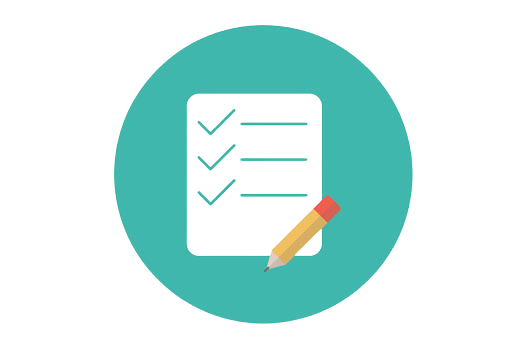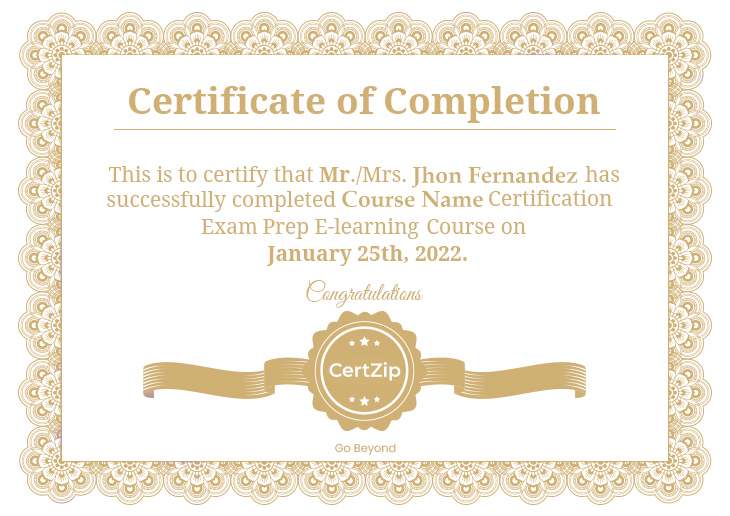Your Shopping Cart

Enroll now to become a Certified MongoDB Developer with CertZip MongoDB Certification Training, upgrade your skills, and lead your professional life.
This MongoDB certification training will assist you in learning the top document-oriented NoSQL database, MongoDB Architecture, CRUD, Schema Design, Data Modelling, and Indexing.
MongoDB certification course makes you job-ready by helping you master data modeling, ingestion, query, sharding, and data replication with MongoDB and installing, updating, and maintaining the MongoDB environment.
A great MongoDB developer should understand the key differences between SQL and NoSQL databases on the conceptual level, and they should also be comfortable with the specific syntax of MongoDB. They can be developers with considerable hands-on experience with MongoDB or a DBA with development experience.
MongoDB is designed to make data easy to access and rarely requires joins or transactions, but it's more than up to the task when you need to do complex querying. The MongoDB Query API lets you query deep into documents and even execute complicated analytics pipelines with just a few lines of declarative code.
With MongoDB, data definition is wholly contained within program code so that schema changes can be made without reference to a central authority and included with no extra effort in nightly or continuous build cycles. These are the technological explanations for why developers prefer MongoDB.
MongoDB is an open-source NoSQL database. A non-relational database can process structured, semi-structured, and unstructured data. It utilizes a non-relational, document-oriented data model and a non-structured query language. MongoDB is highly flexible and enables you to combine and store multiple data types.
MongoDB is one of the most famous NoSQL database management systems (DBMS), and there are detailed points or advantages to support its favor. These advantages are as follows: MongoDB allows flexible document manipulation, and any document can be manipulated or modeled virtually with ease.
MongoDB is created on a scale-out architecture that has become famous with developers of all kinds for developing scalable applications with evolving data schemas. MongoDB makes it easy for developers to hold structured or unstructured data as a document database, and it uses a JSON-like format to store documents.
n this module, you will get an understanding of NoSQL databases, design goals, requirement of NoSQL database/ MongoDB, MongoDB® architecture and introduction to JSON and BSON among others. This module will also cover the installation of MongoDB® and associated tools.
In this module, you will learn Schema Design and Data Modelling in MongoDB®, various data structure and tools available to manage Data Model in MongoDB.
In this module, you will get an understanding of CRUD Operations and their functional usage. You will learn how to perform read/write operations with CRUD.
In this module, you will learn the Indexing and Aggregation Framework in MongoDB®.
In this module you will learn MongoDB® administrative activities such as Health Check, Backup, Recovery, Data Import/Export, Performance tuning, etc.
In this module, you will understand the setup and configuration of MongoDB® High Availability, Disaster Recovery, and Load Balancing.
In this module, you will learn security related with MongoDB, Integration with various tools and technology. Also, you will learn to integrate it with various reporting and Analytical tools like Pentaho, Jaspersoft etc.
In this module, you will learn about various cloud products offered by MongoDB and how they can be used to host or manage your MongoDB deployments.
learn MongoDB® tools to develop and deploy your applications, numerous package components, and advanced concepts related to MongoDB integration, Hadoop, and MongoDB integration.
understand some common real-time scenarios you might find in production and how they can be fixed once identified.
The average salary for a MongoDB developer is $106,106 per year.
To better understand the MongoDB Certification Training, one must learn as per the curriculum.
A MongoDB developer manages the database administration and is crucial in providing vital information to the company. They understand and translate business specifications to offer practical solutions.
Ad-hoc queries for optimized real-time analytics. Indexing appropriately for better query executions. Replication for better data availability and stability. Sharding. Load balancing
MongoDB is a Document Database that stores all schema and records in documents using a JSON (JavaScript Object Notation) like syntax. MongoDB will not be complicated to understand if you are familiar with JavaScript, JSON, and Web Development, and these courses will help you get a good start.
CertZip Support Team is for a lifetime and will be open 24/7 to help with your questions during and after completing the MongoDB Certification Training.
By enrolling in MongoDB and completing the module, you can get the CertZip MongoDB Training Certification.


Every certification training session is followed by a quiz to assess your course learning.

The Mock Tests Are Arranged To Help You Prepare For The Certification Examination.

A lifetime access to LMS is provided where presentations, quizzes, installation guides & class recordings are available.

A 24x7 online support team is available to resolve all your technical queries, through a ticket-based tracking system.

For our learners, we have a community forum that further facilitates learning through peer interaction and knowledge sharing.

Successfully complete your final course project and CertZip will provide you with a completion certification.
MongoDB Training demonstrates that the holder has the proficiency and aptitudes to work with MongoDB.
Understanding numerous frameworks is no damage in your Big Data career. MongoDB certification helps you enhance your skills as a Big Data Engineer as well as it gives a significant boost to your career in terms of salary and hike.
MongoDB might be proper for you if you're ready for a career in a stable and high-paying field, and this Certification is the place to start.
